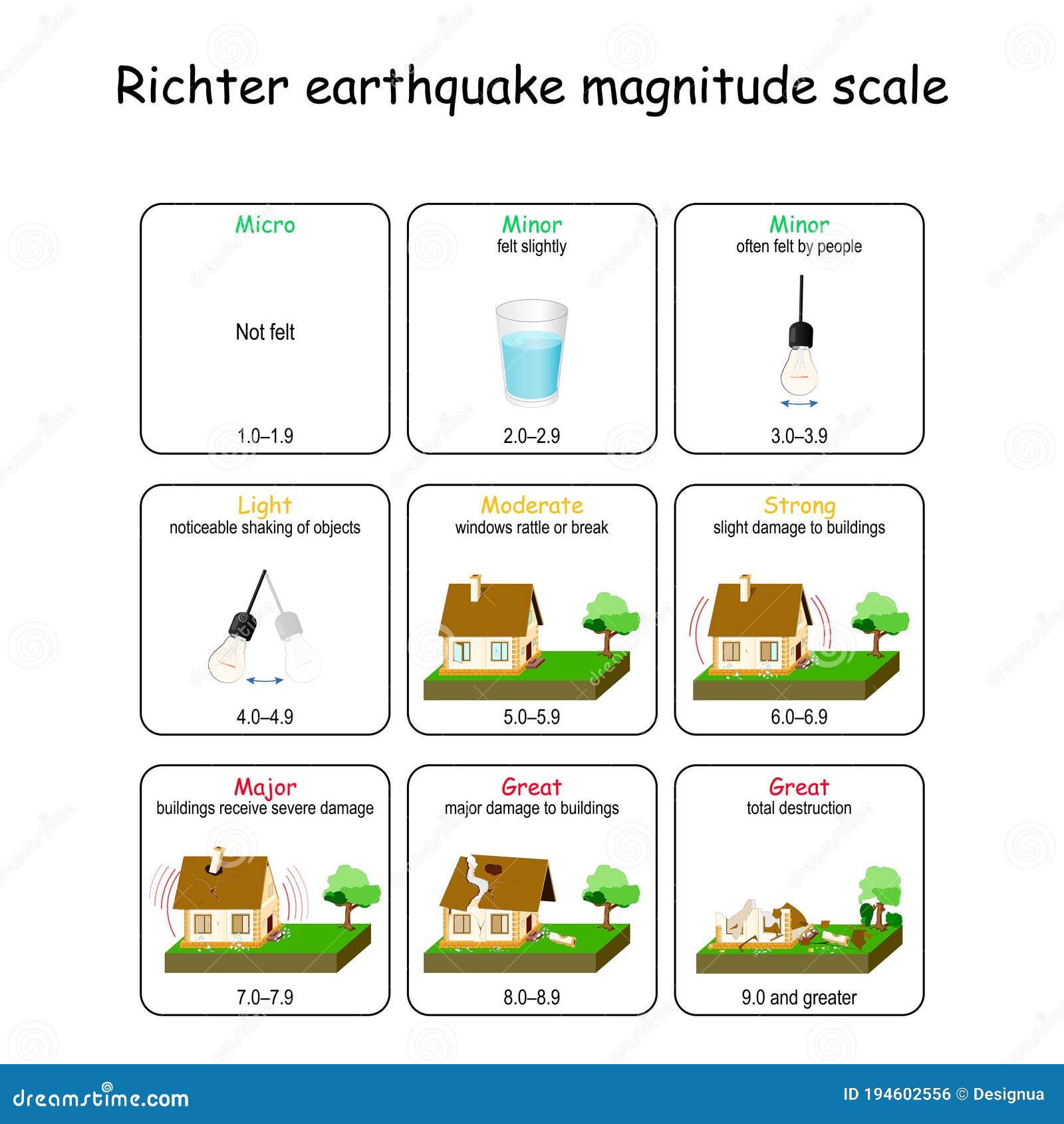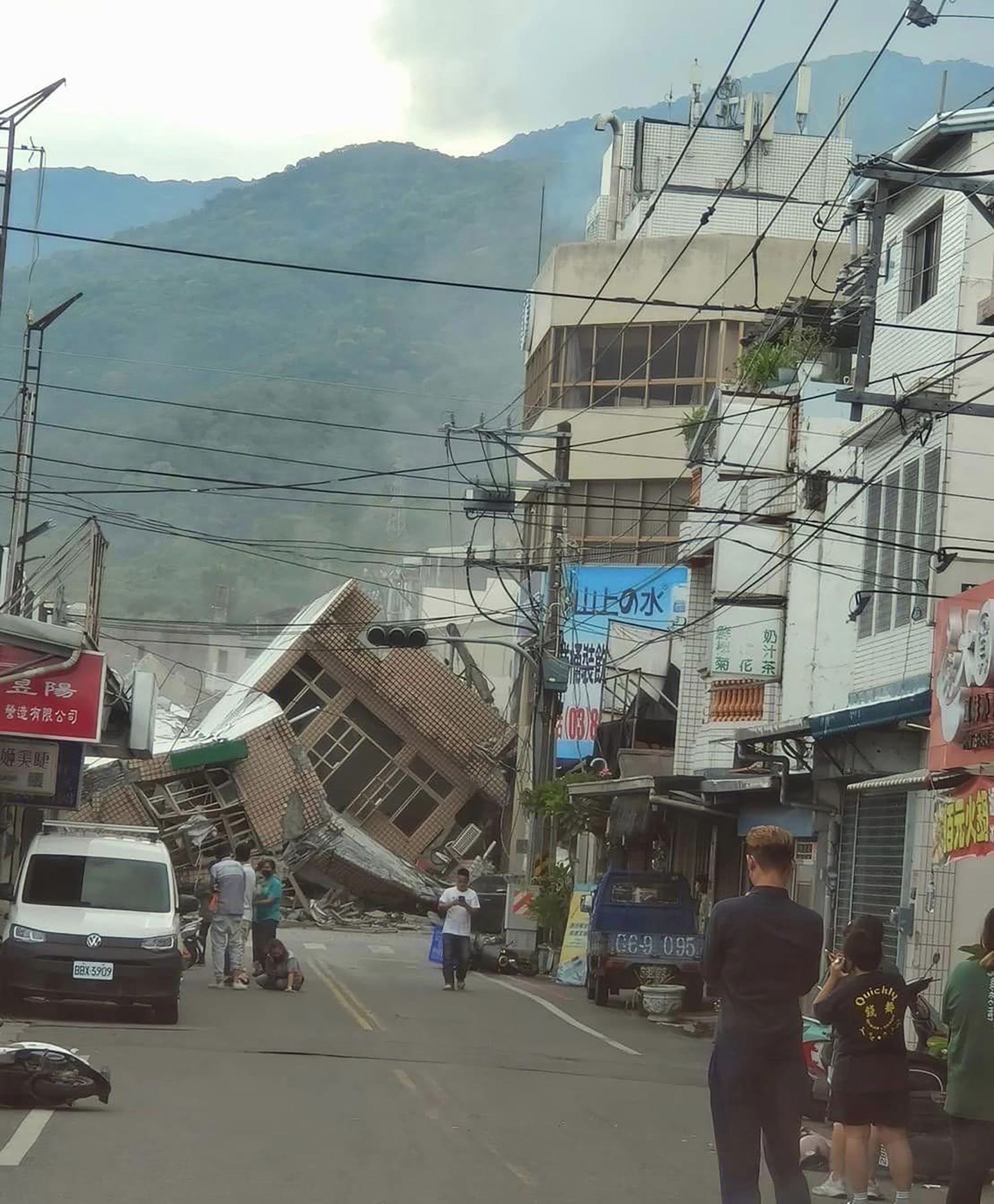Taiwan Earthquake: Magnitude, Impact, And Safety Precautions

Earthquake Magnitude Scale Vector Illustration | CartoonDealer.com - Source cartoondealer.com
Editor's Notes: "Taiwan Earthquake: Magnitude, Impact, And Safety Precautions" have published today date. In recent years, Taiwan has experienced several earthquakes of significant magnitude, causing widespread damage and loss of life. Understanding the magnitude, impact, and safety precautions associated with earthquakes is crucial for residents and visitors alike.
Our team of experts has analyzed extensive data and conducted thorough research to present this comprehensive guide on "Taiwan Earthquake: Magnitude, Impact, And Safety Precautions." This guide aims to provide valuable insights and practical advice to help individuals prepare for and respond effectively to earthquakes.
Key Differences or Key Takeaways
| Magnitude | Impact | Safety Precautions |
|---|---|---|
| Refers to the strength of an earthquake, measured on the Richter scale. | Describes the effects of an earthquake on buildings, infrastructure, and the environment. | Measures taken to minimize the risk of injury or damage during an earthquake. |
Understanding Earthquake Magnitude
FAQ
The following is a compilation of frequently asked questions and answers regarding the recent earthquake in Taiwan, providing essential information and safety guidelines.
Taiwan Earthquake Updates: A 7.7 magnitude quake hits Taipei; Four dead - Source www.livemint.com
Question 1: What is the magnitude and epicenter of the earthquake?
The earthquake had a magnitude of 6.9 on the Richter scale, with an epicenter located approximately 22 kilometers north-northeast of Hualien City, Taiwan.
Question 2: What are the reported impacts of the earthquake?
The earthquake caused significant damage to buildings, roads, and infrastructure in Hualien County. There have been reports of multiple injuries and fatalities.
Question 3: What safety precautions should residents take after an earthquake?
After an earthquake, it is crucial to check for injuries and damage. Stay away from damaged buildings and areas with downed power lines. If possible, evacuate to an open area and follow official instructions.
Question 4: How can people prepare for future earthquakes?
To prepare for future earthquakes, it is advisable to develop an emergency plan, including a designated meeting place and an emergency kit containing essential supplies. Secure heavy furniture and appliances, and learn basic first aid and CPR techniques.
Question 5: How can individuals assist in recovery efforts?
Those wishing to contribute to recovery efforts should contact reputable organizations or follow official government guidelines. Monetary donations or volunteering at shelters and disaster relief centers can make a significant impact.
Question 6: What information sources are reliable for updates on the situation?
For up-to-date information on the earthquake, refer to official sources such as the Central Weather Bureau of Taiwan and the National Fire Agency. Reputable news outlets can also provide accurate and timely updates.
Remember, it is essential to stay informed and follow safety guidelines to minimize risks and ensure well-being during and after an earthquake.
Next Article: Analyzing the Impact and Response to the Taiwan Earthquake
Tips
In the event of an earthquake in Taiwan, adhering to safety protocols is vital. This article, Taiwan Earthquake: Magnitude, Impact, and Safety Precautions, provides valuable information and tips to navigate such a situation.
Tip 1: Drop, Cover, and Hold On
When an earthquake strikes, individuals should immediately Drop to the ground and find a sturdy table or desk to take cover under or near. As they Cover, they should remain in this position until the tremors subside. Additionally, they should Hold On to the covering surface or object to minimize movement and protect their head and vital organs.
Tip 2: Stay Away from Windows
During an earthquake, windows can shatter and pose significant hazards. Hence, it is crucial to stay clear of them. If possible, move to an interior space away from windows, walls, and other structures that could collapse.
Tip 3: Secure Loose Objects
When an earthquake occurs, unsecured objects in a room can become hazardous projectiles. Before an earthquake happens, take the time to secure shelves, heavy objects, and picture frames. This will reduce the likelihood of injuries and damage caused by falling items.
Tip 4: Be Prepared with an Emergency Kit
In case of an earthquake, having an emergency kit can provide essential supplies. It should include a flashlight, a battery-powered radio, non-perishable food items, water, a first-aid kit, and any necessary medications.
Tip 5: Evacuate Safely
If the earthquake has severely damaged a building or the authorities issue an evacuation order, it is important to evacuate calmly and safely. Leave the building using the designated evacuation route, and do not use elevators.
Tip 6: Contact Family and Friends
After an earthquake, contacting family and friends to inform them of one's safety is a priority. Designated an out-of-area contact person during emergency situations can streamline communication and provide reassurance.
Tip 7: Stay Informed
During and after an earthquake, staying informed about the situation is essential. Listen to local news channels or radio stations for updates on the earthquake's severity, potential hazards, and official instructions.
Tip 8: Avoid Damaged Areas
Damaged buildings and areas after an earthquake can be extremely dangerous. Avoid entering or going near them unless necessary for rescue purposes. Stay away from downed power lines or other potential hazards.
Taiwan Earthquake: Magnitude, Impact, And Safety Precautions
Taiwan is prone to earthquakes due to its location on the boundary of several tectonic plates. Understanding the magnitude, potential impact, and necessary safety precautions is crucial for mitigating risks and ensuring public safety during an earthquake.

Taiwan Earthquake / Taiwan earthquake: Pacific Ring of Fire on alert - Source gassponerver.blogspot.com
- Magnitude: Measured on the Richter scale, indicates the energy released by the earthquake.
- Impact: Effects can range from minor shaking to severe ground motion, causing damage to buildings and infrastructure.
- Safety Precautions: Pre-earthquake preparations and actions during the event can save lives, such as securing furniture, creating an emergency plan, and staying informed.
- Emergency Response: Coordinated efforts by government agencies and emergency responders aim to provide assistance and address the aftermath of the earthquake.
- Building Codes: Strict building codes and earthquake-resistant construction practices are essential in reducing the risk of damage and fatalities.
- Public Education: Raising awareness and providing information on earthquake preparedness and safety measures to the public is vital for promoting responsible behavior.
These aspects are interconnected and form a comprehensive framework for managing earthquake risks in Taiwan. By understanding the magnitude and potential impact, implementing safety precautions, ensuring proper emergency response, adhering to building codes, and educating the public, the country can enhance its resilience and minimize the devastating effects of earthquakes.

Taiwan Earthquake - Source fity.club
Taiwan Earthquake: Magnitude, Impact, And Safety Precautions
The magnitude of an earthquake is a measure of the energy released during the event. It is determined by the size of the fault that ruptures and the amount of displacement that occurs. The impact of an earthquake is influenced by the magnitude, epicenter location, and local geology. Safety precautions are essential to minimize the risk of injury or damage during an earthquake.

Taiwan Earthquake Tsunami Warning - Source a842kristajames.blogspot.com
The Taiwan Earthquake of 1999 was a magnitude 7.3 earthquake that caused widespread damage and loss of life. The epicenter was located near the city of Nantou, and the earthquake was felt throughout the island. The earthquake caused buildings to collapse, roads to buckle, and bridges to collapse. Over 2,000 people were killed and over 10,000 were injured.
The Taiwan Earthquake is a reminder of the importance of earthquake safety. Residents of earthquake-prone areas should be aware of the risks and take steps to prepare for an earthquake. These steps include securing furniture, having a plan for evacuation, and stocking up on emergency supplies.
Earthquake Safety Tips
| Before an Earthquake | During an Earthquake | After an Earthquake |
|---|---|---|
| Secure furniture | Drop, cover, and hold on | Check for injuries |
| Have an evacuation plan | Stay calm | Contact family and friends |
| Stock up on emergency supplies | Protect your head and neck | Be aware of aftershocks |
Conclusion
Taiwan Earthquake: Magnitude, Impact, And Safety Precautions is a timely and important topic. Earthquakes are a major natural hazard that can cause widespread damage and loss of life. By understanding the magnitude, impact, and safety precautions associated with earthquakes, we can better prepare for and mitigate the risks associated with these events.
The Taiwan Earthquake of 1999 was a devastating event that serves as a reminder of the importance of earthquake preparedness. Residents of earthquake-prone areas should take steps to secure their homes, develop an evacuation plan, and stock up on emergency supplies. By taking these precautions, we can help to reduce the risk of injury or damage during an earthquake.
